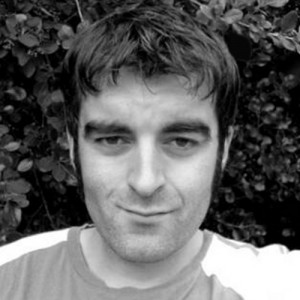 Rhys Tate on writing his Carmel Bird Award shortlisted story ‘The Koala Motel’, published in The Great Unknown.
Rhys Tate on writing his Carmel Bird Award shortlisted story ‘The Koala Motel’, published in The Great Unknown.
What did you enjoy about writing to this particular theme?
I don’t scare that easily—the last time I really had the heebie-jeebies was when we broke into the boarded-up shell of an asylum out here in the country—but I found that during the editing of the piece, midnightish, empty house, I was starting to skeeze out a little. That was fun.
Tell us about your story in The Great Unknown.
The Koala Motel was a very real place out to the west of Colac. As I drove past when it was operating, I used to wonder who the hell would stay there, and after the place went bust and was progressively vandalised to the foundations, I wondered who the hell would even stop. It was a strange and strangely isolated little corner of Australia.
What memories do you have of watching The Twilight Zone, The Outer Limits or of reading spooky/uncanny stories (or comics) as a kid?
Oh lordy. Doctor Who and the Terrified Toddler Crouched Behind the Couch. That scene in The Twilight Zone where the girl’s mouth is missing, replaced by a blank piece of skin. The Faces of Bélmez in Strange Stories, Amazing Facts. Someone let me watch Poltergeist when I was nine. I read The Amityville Horror at twelve and slept with the light on for weeks. Of course this had a huge effect on me, as did the fact that I’ve always been a poor sleeper and vivid dreamer. (Luckily, most of my nightmares are written from the third person point of view.) I tend to find the indie stuff has the best level of chills and thrills these days: creepypasta like ‘Ted’s Caving Page’, and Salad Fingers on YouTube.
Despite her success as a writer of quality macabre and psychological thrillers, Patricia Highsmith was never published in The New Yorker. Has anything changed? What thoughts do you have on the current status of writing in a genre?
Mmm, at a particular time some genres fit more closely to what is considered literature than others: Cormac McCarthy and Margaret Atwood with their dystopian fiction, for example. Perhaps we’re not impressed any more unless the entire world is dying. Anyway, didn’t postmodernism invalidate this line of thinking? People should enjoy what they enjoy and damn the critics. Life’s too short to worry.
